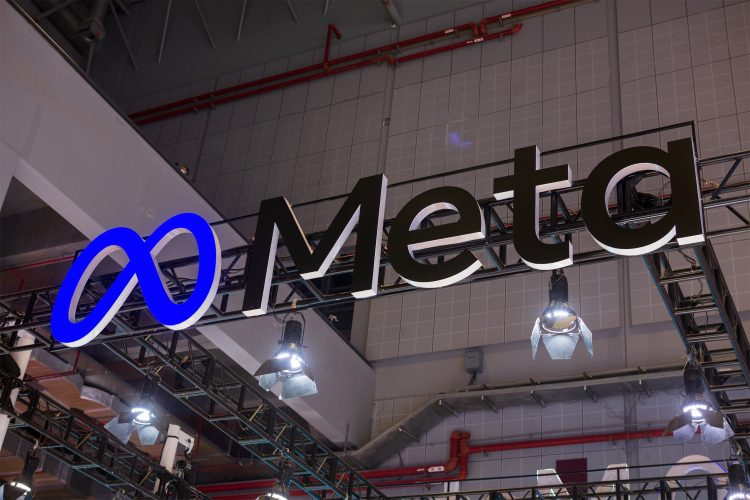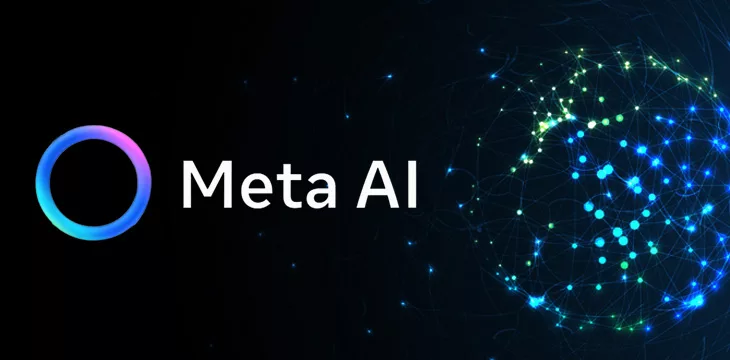Table of Contents
Meta is aggressively moving forward in the generative AI arms race by introducing a new program designed to bring startups into its AI ecosystem. Called “Llama for Startups,” this initiative aims to provide small companies with easier access to Meta’s cutting-edge Llama AI models, along with funding, support, and infrastructure to build competitive generative AI products.
This program underscores Meta’s ambition to dominate the open-source AI landscape despite increasing competition and some recent hurdles. By offering direct incentives and technical resources, Meta is making a strong play to become the preferred choice for early-stage companies building on large language models (LLMs).
Llama for Startups: A Strategic Investment in the Future
Meta’s new initiative targets U.S.-based startups in the field of generative AI development. Through “Llama for Startups,” Meta will provide selected companies with financial and technical support to accelerate their growth using the Llama models.
Key Eligibility Criteria
To qualify for the program, startups must meet the following conditions:
- Be incorporated in the United States.
- Have raised less than $10 million in funding
- Employ at least one developer.
- Be actively developing generative AI applications.
Interested startups were encouraged to apply by May 30. Meta emphasized its goal to assist early-stage firms who might not otherwise have access to top-tier AI models or sufficient infrastructure to deploy them effectively.
Financial Incentives for Building with Llama
Meta is offering up to $6,000 per month for a maximum of six months to help startups cover costs associated with building or enhancing their generative AI tools. This funding can be used for various expenses such as computing resources, fine-tuning models, hiring technical staff, or scaling infrastructure.
In addition to monetary support, Meta will assign experts from the Llama team to work directly with these startups. These experts will help developers optimize their solutions, explore advanced use cases, and navigate the Llama ecosystem efficiently.
Meta’s Competitive Push in the Open Model Space
Meta’s latest move is part of a broader strategy to solidify its influence in the open-source large language model (LLM) market. The company’s Llama models have already gained substantial traction, boasting over a billion downloads, yet they still face increasing pressure from major competitors.
Rivals Threaten Meta’s Dominance
Companies like Google, DeepSeek, and Alibaba’s Qwen are emerging as significant threats to Meta’s ambitions. Each of these players is rolling out their own open or semi-open models with enhanced capabilities, competing for attention among researchers, developers, and enterprises.
Unlike Meta, which has committed to open access and community engagement, some rivals are leveraging more proprietary models, offering better benchmark results or greater commercial deployment flexibility. This growing competition is pushing Meta to continually innovate and invest in programs like “Llama for Startups” to defend its market share.
Recent Setbacks for Meta’s Llama Models
Despite its progress, Meta’s Llama initiative has encountered some significant challenges in recent months. These setbacks have raised questions about the consistency and transparency of its AI development efforts.
Delay in Llama 4 Behemoth Rollout
According to a report by The Wall Street Journal, Meta has reportedly postponed the release of Llama 4 Behemoth, its flagship AI model, due to underwhelming performance on several key benchmarks. The delay suggests that Meta’s larger-scale models may not yet be able to compete with the performance of rivals like OpenAI’s GPT-4 or Google’s Gemini.
This delay is a blow to Meta’s momentum, especially as the company had positioned Behemoth as a significant milestone in generative AI capability.
Allegations of Benchmark Misconduct
In April, Meta was accused of using non-public versions of its Llama models to achieve high scores on LM Arena, a popular crowdsourced AI benchmark. The company submitted a Maverick variant of Llama 4, explicitly optimized for chat interactions, which raised concerns about fair comparison.
Although Meta later released a different version of the model to the public, the incident has sparked discussions about transparency and reproducibility in the AI benchmarking process. Critics argue that Meta should standardize the evaluation process across public and private versions to maintain credibility.
Ambitious Revenue Projections and Monetization Plans

Despite hurdles, Meta remains optimistic about the commercial potential of its generative AI offerings. The company is banking heavily on AI models like Llama to contribute significantly to its long-term revenue streams.
Read More: Digg’s Human-Centered Reboot in the AI Era
AI Revenue Targets for 2025 and Beyond
Meta has made bold projections, stating that its generative AI products could generate between $2 billion and $3 billion in revenue by 2025. Looking further ahead, the company believes this figure could balloon to between $460 billion and $1.4 trillion by 2035. These estimates underscore Meta’s conviction that AI will play a pivotal role in the company’s transformation from a social media giant to a leading AI platform provider.
Monetizing Meta AI and Llama Ecosystem
Meta’s Llama models are being increasingly integrated into its consumer-facing services and enterprise tools. Notably, Meta AI, the company’s intelligent assistant powered by Llama, is being explored for monetization through ads and premium subscriptions, according to CEO Mark Zuckerberg during the Q1 earnings call.
Other revenue strategies include:
- API Services: Meta has launched an API for customizing Llama models, enabling developers to fine-tune models for specific use cases.
- Revenue-Sharing Partnerships: Companies hosting Meta’s models may enter into revenue-sharing agreements, adding financial incentives for third-party integration.
These moves indicate Meta’s intent to create a self-sustaining AI ecosystem where both infrastructure and services are monetized.
Meta’s Massive Investment in Generative AI
To support these ambitious plans, Meta is investing heavily in its Gen AI infrastructure and research and development. The company’s expenditures in this area rival some of the most significant tech investments in the AI space.
GenAI Budget Exceeds $900 Million
In 2024 alone, Meta allocated over $900 million to its generative AI initiatives. This includes costs related to model development, staff, cloud resources, and partnerships. And the spending is far from over. Internal estimates suggest that Meta’s GenAI budget may surpass $1 billion in 2025 as it continues to develop larger, more capable versions of the Llama models.
Capital Expenditures Could Reach $80 Billion
Meta has signaled plans to invest between $60 billion and $80 billion in capital expenditures in 2025, with a large portion dedicated to building new data centers and purchasing high-performance computing infrastructure, including NVIDIA GPUs and AI accelerators.
These data centers will be essential for training and deploying Llama models at scale while also supporting AI services embedded in Meta’s platforms, including Facebook, Instagram, and WhatsApp.
Why Llama for Startups Matters
Meta’s “Llama for Startups” program could play a pivotal role in the broader AI landscape. By providing emerging startups with access to powerful models, infrastructure, and expert guidance, Meta is cultivating a community of developers who are invested in its technology.
Encouraging Innovation and Loyalty
Startups that receive early-stage support from Meta are more likely to remain loyal to its platform. This strategy mirrors similar moves by Amazon Web Services (AWS) and Google Cloud, both of which have long offered startup credit programs to grow their developer ecosystems.

Meta’s offering is more specialized, however, focusing squarely on generative AI use cases, including:
- AI-powered productivity tools
- Chatbots and virtual assistants
- AI-generated content platforms
- Enterprise automation tools
FAQs
What is Meta’s Llama for Startups program?
It’s a new initiative by Meta to support early-stage U.S. startups using its Llama AI models through funding, resources, and expert guidance.
Who is eligible for the program?
Eligible startups must be U.S.-based, incorporated, have raised less than $10 million, and include at least one developer working on generative AI.
What kind of support does Meta provide?
Meta offers up to $6,000 per month for six months, technical assistance from Llama experts, and infrastructure support to help startups build and scale AI tools.
Why is Meta launching this program now?
Meta aims to strengthen its position in the competitive open-source AI space by building a loyal developer ecosystem around its Llama models.
Can international startups apply?
No, currently, the program is only available to startups incorporated and operating in the United States.
Conclusion
Meta’s Llama for Startups initiative is a strategic move to empower AI-focused startups and solidify its leadership in the open-source model ecosystem. With generous financial backing, expert support, and access to its powerful Llama models, Meta is laying the groundwork for long-term innovation and adoption. Despite facing industry challenges, this program could foster a new wave of generative AI tools powered by Llama making Meta a key partner for emerging AI businesses across the U.S. startup landscape.


